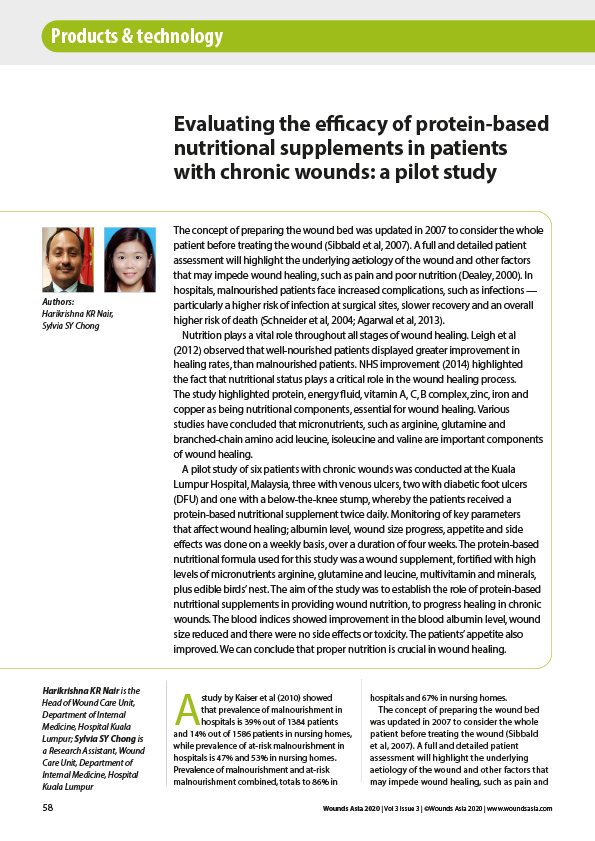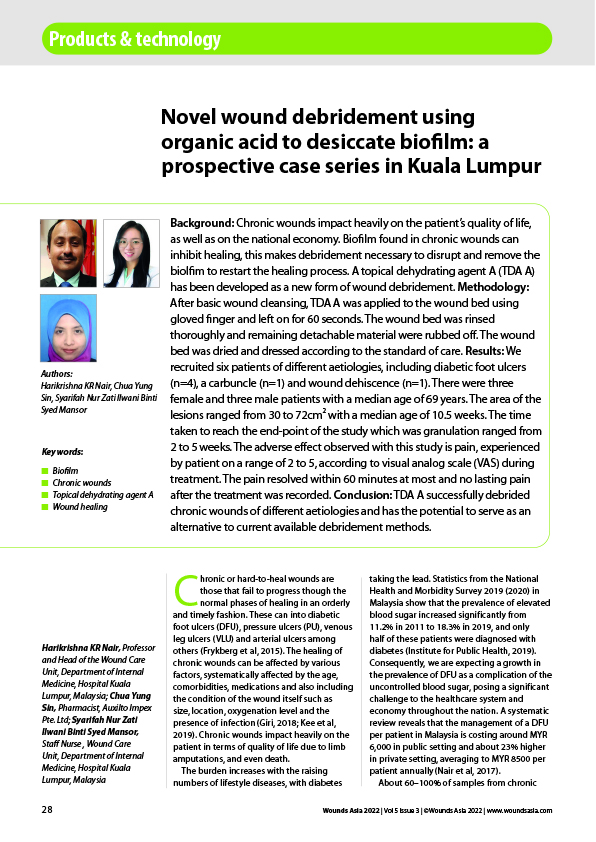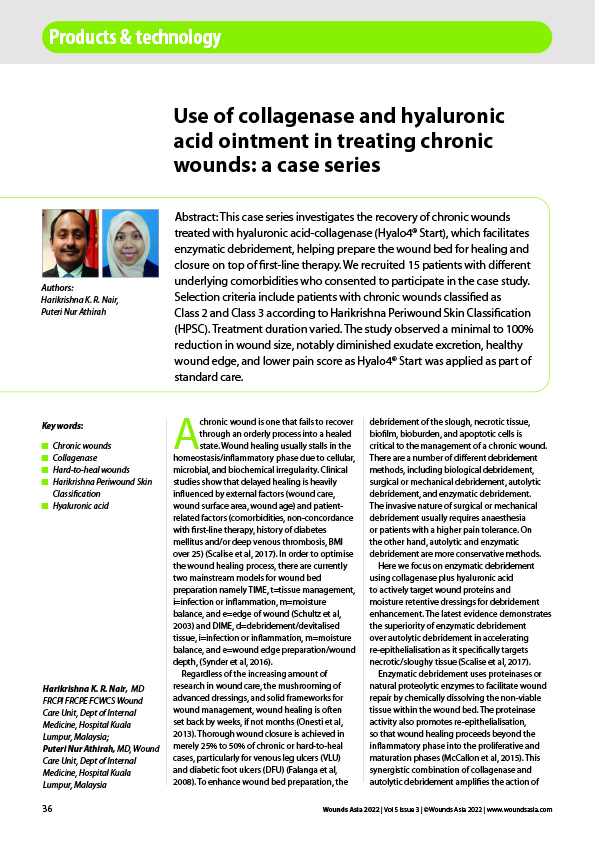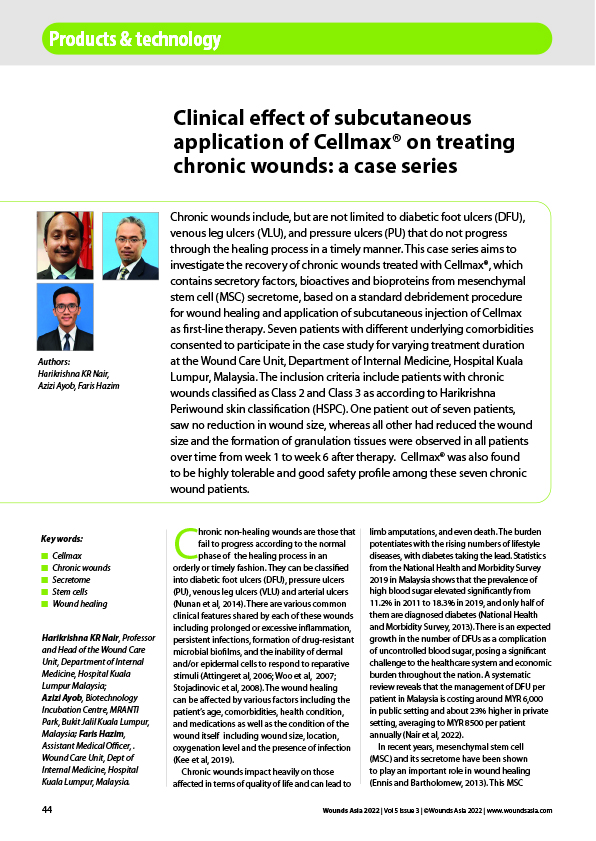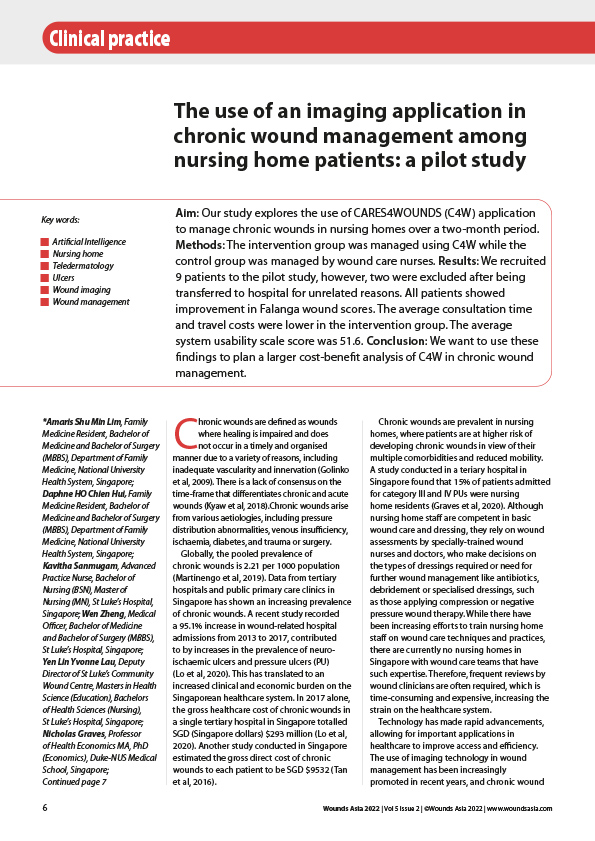The concept of preparing the wound bed was updated in 2007 to consider the whole patient before treating the wound (Sibbald et al, 2007). A full and detailed patient assessment will highlight the underlying aetiology of the wound and other factors that may impede wound healing, such as pain and poor nutrition (Dealey, 2000). In hospitals, malnourished patients face increased complications, such as infections — particularly a higher risk of infection at surgical sites, slower recovery and an overall higher risk of death (Schneider et al, 2004; Agarwal et al, 2013). Nutrition plays a vital role throughout all stages of wound healing. Leigh et al (2012) observed that well-nourished patients displayed greater improvement in healing rates, than malnourished patients. NHS improvement (2014) highlighted the fact that nutritional status plays a critical role in the wound healing process. The study highlighted protein, energy fluid, vitamin A, C, B complex, zinc, iron and copper as being nutritional components, essential for wound healing. Various studies have concluded that micronutrients, such as arginine, glutamine and branched-chain amino acid leucine, isoleucine and valine are important components of wound healing. A pilot study of six patients with chronic wounds was conducted at the Kuala Lumpur Hospital, Malaysia, three with venous ulcers, two with diabetic foot ulcers (DFU) and one with a below-the-knee stump, whereby the patients received a protein-based nutritional supplement twice daily. Monitoring of key parameters that affect wound healing; albumin level, wound size progress, appetite and side effects was done on a weekly basis, over a duration of four weeks. The protein-based nutritional formula used for this study was a wound supplement, fortified with high levels of micronutrients arginine, glutamine and leucine, multivitamin and minerals, plus edible birds’ nest. The aim of the study was to establish the role of protein-based nutritional supplements in providing wound nutrition, to progress healing in chronic wounds. The blood indices showed improvement in the blood albumin level, wound size reduced and there were no side effects or toxicity. The patients’ appetite also improved. We can conclude that proper nutrition is crucial in wound healing.

